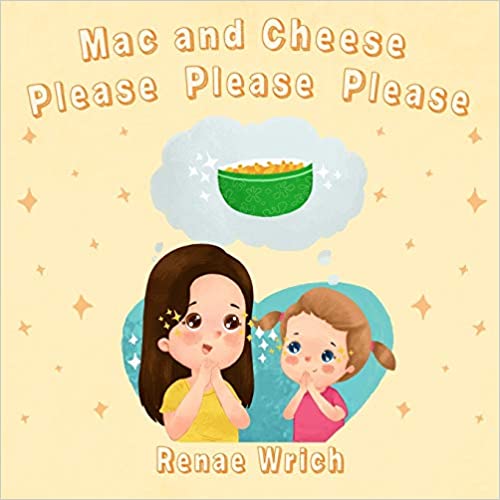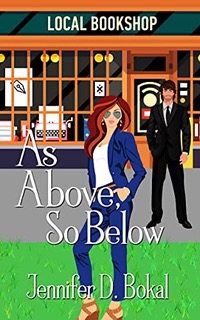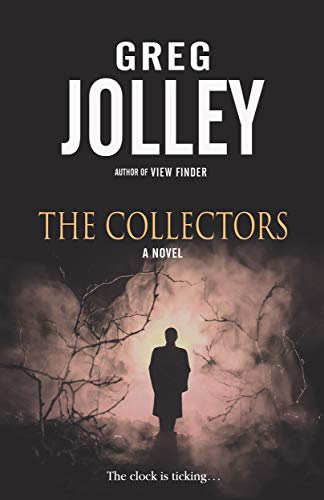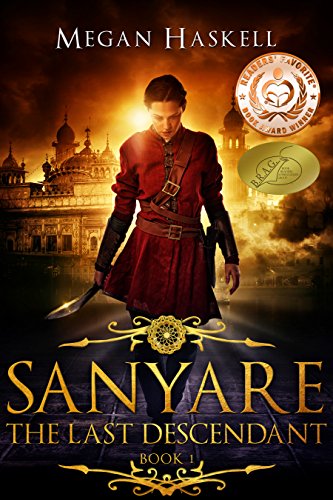I GET To Say I Have Deadlines
February 12, 2024 by Denise M. Colby in category The Writing Journey by Denise Colby tagged as A Writer's Life, deadlines, Denise M ColbyI’m in a fun new season of my writing journey. One where I truly get to say I have deadlines. Those deadlines include turning back in my corrected edits that are due on the nineteenth of this month.

Pulling together a blog post for this month completely skipped my mind because my focus has been on my edits as well as working on book two, which is due later this year.
I Get to do this
This is the phrase that I feel every day. I get to do this! And I’m so excited. I still feel as if I’m in a dream state that my first book will be published this year and that others will be reading my stories.
I’m also excited to be learning and GROWing (my focus word this year) on how to work full-time, manage family responsibilities, and build my writing career. And I know I’m not the only one. Every writer I know does this. Happy to be joining them.
I have attended many workshop sessions related to time management and scheduling. It’s now time to apply the lessons learned from them.
So this post will be super short because I need to get to the other things us writers do.
Happy February, everyone. And Happy Writing.
Denise chooses a focus word every year. GROW is her word for 2024. You can learn about focus words on her website, where she’s building separate pages on each word she chooses.
0 0 Read moreNever Say Never: Online Publishers
September 15, 2020 by Rebecca Forster in category The Write Life by Rebecca Forster tagged as A Writer's Life, business of writing, digital publishing Three years ago a friend asked me to advise her niece about publishing her book. She was a new mom, married to a man in graduate school, and she needed to make a lot of money. We spoke at length; I told her publishing is not a road-to-riches. She thanked me, but clearly still had stars in her eyes.
Three years ago a friend asked me to advise her niece about publishing her book. She was a new mom, married to a man in graduate school, and she needed to make a lot of money. We spoke at length; I told her publishing is not a road-to-riches. She thanked me, but clearly still had stars in her eyes.
A week later she e-mailed me with the news that she had signed with a traditional publisher. I was floored. I wrote for the big five for twenty-five years, and it took longer than a week to get a rejection letter. Then again, perhaps she had an amazing book. I congratulated her and asked which publisher she would be working with. It was not one I had heard of because she had signed an egregious contract with an online publisher.
She was locked into a ten-book schedule, the royalties were miserly, the contract did not promise traditional distribution as she believed it did, and there would not be publisher promotions or advertising. Most concerning were the ladies who ran the company. Their qualifications were that they were all avid readers, one had a degree in English, and another had worked in marketing for a manufacturing firm.
I called my friend, a businesswoman, outlined the problems with the contract in regards to her niece’s objectives. The reality was that she would never be in bookstores, would be responsible for her own marketing, and would make next to nothing (sadly this proved true even after she’d written five books). When my friend asked if I would ever work with such a publisher, my answer was ‘never’.
SO MUCH FOR NEVER
 Two weeks ago I signed a three-year contract with Wolfpack Publishing, an online publisher. Here’s why I did it:
Two weeks ago I signed a three-year contract with Wolfpack Publishing, an online publisher. Here’s why I did it:
1) The owner and his team are professionals in their book related fields (editing, online marketing, graphic artists, etc.).
2) The owner and his team are accessible to every author, at any time.
3) Wolfpack curates their catalogue, carefully choosing their authors.
4) Wolfpack is dedicated to understanding, nurturing, and marketing each author in their very specific genres (action adventure, westerns, thrillers).
5) Wolfpack is transparent, giving their authors monthly accounting of their sales and publicly celebrating those who hit lists.
6) Wolfpack encourages camaraderie not competition among their authors.
7) Wolfpack constantly evaluates the corporate and individual brands and adjusts for success
8) Wolfpack joyously promotes both the Wolfpack brand and their individual authors.
9) Wolfpack’s contract is reasonable, responsible, and fair.
10) Wolfpack asks their authors to do one thing: write good books.
As in traditional publishing, online publishers are not created equal. It is up to the author to do their due diligence, look closely at the online publisher, their capabilities, qualifications, and their contracts before signing on the dotted line. In publishing there is no golden ticket, there is hard work, luck, and, hopefully, support. For me, Wolfpack Publishing knocked the paradigm for online publishing out of the ballpark. I’m thrilled to be ‘running with the pack’.
0 1 Read moreWHAT A CHARACTER!
March 15, 2012 by A Slice of Orange in category Archives tagged as A Writer's Life, characterization, writing craft
![]() One of the nicest compliments I ever received was from a reviewer who called “Josie Bates (heroine of my witness series) one of the best characters everâ€. For an author, that is the highest praise.
One of the nicest compliments I ever received was from a reviewer who called “Josie Bates (heroine of my witness series) one of the best characters everâ€. For an author, that is the highest praise.
Think about the millions of words written about thousands of fictional people, and then ask yourself how many stuck in your mind, reside in your heart, or continue to haunt you years after reading the book? If you’re like me, there are a handful of such characters in your memory. My list includes:
Gone With the Wind: Scarlett O’Hara, Rhett Butler and Miss Mellie.
Princess Bride: Buttercup, Inigo Montoya, Westley
The Hunger Games: Katniss
Girl With the Dragon Tattoo: Lisabeth Salander
Johnny Oops: Johnny Oops (a fine Indie book)
Analyzing these characters helped me become a better writer, and here’s what I have learned. Memorable characters are:
Spiritually Unique: Villain or hero, each one has his or her own demons and desires, strengths and weaknesses. Strength on its own is uninteresting without weakness.
Physically identifiable: A great character manifests his or her uniqueness in dress, mannerisms, and speech patterns. Imagine an actor tackling your character on screen. Can you hear them? See them? Are they so real you would know them walking down the street?
Logical: A character with a unique speech pattern may amuse your reader for a while but if the words coming out of that character’s mouth aren’t appropriate to story, plot and core of that character, the affectations is illogical.
Unapologetic: Readers may not always embrace your vision, but if you give a character an unusual life, let them live it. Do not be swayed by fear of political incorrectness or tempted to take the safe route. Writing is about nurturing your bold voice.
Purposeful: A character’s journey is guided by principles born of experiences. In Josie Bates’ case, she is formed by her mother’s abandonment (personal) and her belief that the law and justice are two separate things (professional). The author’s objective is to create a passionate character who is willing to go to great lengths to protect what they believe in or secure what they desire.
For Example…
• Katniss’s (Hunger Games) and Scarlett’s (Gone With the Wind) fight for basic survival.
• Westley’s (Princess Bride) relentless search for his lost and true love.
• Salandar’s (Dragon Tattoo) desperate desire for self-determination.
• Rhett Butler’s (Gone With the Wind) code of honesty.
• Melanie’s (Gone with the Wind) passionate belief in Scarlett’s inherent goodness.
• Johnny Oops’ (Johnny Oops) wry but heartfelt search to define his teenage self.
Don’t be afraid to refine your characters. We are not born the people we will become; neither are those who populate your books. Nurture them, define them, polish them and they will live in the reader’s memory for a very long time.
3 0 Read more
Heck Yeah! Writing Together Can Be….Fun?
August 15, 2011 by Rebecca Forster in category The Write Life by Rebecca Forster tagged as A Writer's Life, brother, collaboration, friends, mother, sister, sonI went to a movie I had been excited to see and was sorely disappointed. The story was thin, the plot holes deep and characterization shallow. When I saw four writers credited for the script, I realized why the movie never gelled. Odd slices of brilliance had flashed and fizzled in a jumble of visions, styles and pressure to perform.
Which leads me to the question of the day: How do creative partnerships thrive and turn out one saleable, seamless product? To answer that question, I joined Scott Gordon, a superior court judge and author, who partnered with Alex Abella, a seasoned nonfiction writer, to publish Shadow Enemies: Hitler’s Secret Plot against the United States and Debra L. Martin who teams with her brother, David W. Small, on the Rule of Otharia fantasy books. Then I threw in my two cents because my son and I partnered on two book-to-screen adaptation projects.
 The plan: Does there have to be one?
The plan: Does there have to be one?
Rebecca: Our plan was to adapt my books for the screen.* The project turned out to be more intricate than I ever imagined. While the skeleton of the story was there, a screenplay was completely different from a novel format. I had to lean on Alex’s expertise but first I had to acknowledge that, in this arena, he knew better than I did. I wrote the first draft then we sat for hours at the kitchen table going over every line, stage direction and piece of dialogue until we got it right.
Scott: We started from a solid foundation of factual material and a subject that intrigued both of us. Alex and I shared research responsibilities. Once we had all the information we could gather, we locked ourselves in the law library (with gallons of Diet Coke) and came out only when we had a very detailed outline. Alex used his amazing narrative skills to describe how Hitler’s spies were recruited, trained and landed in full Nazi uniforms on our shores. Because of my legal background, I picked up the story as it traveled through the court system, the presidential politics and military tribunal. We definitely played to our strengths.
 Deb: Luckily, my brother and I share a love of the fantasy genre and specifically of psi powers (i.e. telepathy, etc.) so we had a focus. The planning process was extensive and time consuming. We had to share our individual visions for the book and combine them so that we could build the characters and the fictional society from the ground up. For us planning and immersing ourselves in all the details were critical before we ever began to write.
Deb: Luckily, my brother and I share a love of the fantasy genre and specifically of psi powers (i.e. telepathy, etc.) so we had a focus. The planning process was extensive and time consuming. We had to share our individual visions for the book and combine them so that we could build the characters and the fictional society from the ground up. For us planning and immersing ourselves in all the details were critical before we ever began to write.
Execution: Two people/one voice
Rebecca: Because we were working in visuals, voice wasn’t as big a factor as it would have been for a novel. This project was about pacing. Our age difference really got in the way, not our talents. When we were working on our romantic comedy my sensibilities were from the Carey Grant era and his were aligned with The Hangover. With our psychological thriller I had already created a wonderful villain in the book and plot points that I thought were chilling. Alex kicked them up ten notches so those same points became gruesome. I can honestly say, he made both projects thrilling while he acknowledged my expertise in characterization and plot trajectory.
Scott: Because we had divided the subject matter so specifically, we each wrote our sections. When it was time to edit, we were extremely diligent. Through that process, there seemed to come a melding of both our voices resulting in what you called a ‘seamless third voice’.
Deb: We thought we could each write a chapter and then put them together. That plan was a disaster. Our success as co-authors came after much practice and creating detailed outlines not just for the book, but for each chapter. Still, we weren’t rigid and were always open to a chapter that was enhanced beyond the outline. I also continually edited as we went along. Then we both do a full edit, let the project sit and edit once more before publication. That smoothed out snags.
Rough Patches: Keeping the relationship sane & productive
Rebecca: If a mother and son could get divorced, we would have been after the first project. I would get upset because the source material was mine and I thought it was perfect. Alex, also thought it was perfect – for a different time and audience. The second time we worked together we laid out ground rules for resolving disagreements: stop working, reference sections of the source material that bothered us and offer alternative language until we found common ground.
Scott: What? Authors can have creative differences? Seriously, rough patches are a given when you have two authors and one project. I think our disagreements helped the creative process. We had to pull back, think of the project and be frank and direct. The process of hashing out our differences in viewpoints and style made the book richer.
Deb: Dave lives in California and I live in Boston, so when we got together, we worked extremely hard during our in-person visits. But there was one 14-hour editing session that disintegrated into raised voices and ego kicking. Suddenly, we started to laugh and called it a night. The next morning we came to a great compromise for the scene. Now we realize that you have to leave your ego at the door and work for the good of the story.
So, if you’re still thinking about teaming up, go for it. Before you do, make sure you’re a good match. Be civil, be honest, be clear about the purpose of the project, iron out the combined vision and recognize each other’s strengths and weaknesses. If you need a little inspiration pick up Shadow Enemies or Quest for Nobility in the Rule of Otharia series and see how two teams of pros turned out their impeccable books. And when my script becomes a movie, you’re all invited to join me and my partner for the premier – we’ll buy the popcorn.
*One script is in development, one is with producers and new books are always in the pipeline.
0 0 Read moreINPIRATION: A ROCK & A HARD PLACE
December 15, 2010 by A Slice of Orange in category Archives tagged as A Writer's Life, holiday, rocks, What Inspires You*This year another rock has been added and a hat has rounded out the ensemble. I preferred the simplicity of the rock, the stone and the scarf but I applaud the extra inspiration and creativity. Here’s wishing everyone a little inpspiration in the year to come. Happy holidays.
Affiliate Links
A Slice of Orange is an affiliate with some of the booksellers listed on this website, including Barnes & Nobel, Books A Million, iBooks, Kobo, and Smashwords. This means A Slice of Orange may earn a small advertising fee from sales made through the links used on this website. There are reminders of these affiliate links on the pages for individual books.
Search A Slice of Orange
Find a Column
Archives
Featured Books
MAC AND CHEESE, PLEASE, PLEASE, PLEASE
They liked macaroni and cheese SO much, if they could, they would eat it for breakfast, dinner, and lunch!
More info →SANYARE: THE LAST DESCENDANT
A woman torn between honor and survival…
More info →Newsletter
Contributing Authors
Search A Slice of Orange
Find a Column
Archives
Authors in the Bookstore
- A. E. Decker
- A. J. Scudiere
- A.J. Sidransky
- A.M. Roark
- Abby Collette
- Alanna Lucus
- Albert Marrin
- Alice Duncan
- Alina K. Field
- Alison Green Myers
- Andi Lawrencovna
- Andrew C Raiford
- Angela Pryce
- Aviva Vaughn
- Barbara Ankrum
- Bethlehem Writers Group, LLC
- Carol L. Wright
- Celeste Barclay
- Christina Alexandra
- Christopher D. Ochs
- Claire Davon
- Claire Naden
- Courtnee Turner Hoyle
- Courtney Annicchiarico
- D. Lieber
- Daniel V. Meier Jr.
- Debra Dixon
- Debra H. Goldstein
- Debra Holland
- Dee Ann Palmer
- Denise M. Colby
- Diane Benefiel
- Diane Sismour
- Dianna Sinovic
- DT Krippene
- E.B. Dawson
- Emilie Dallaire
- Emily Brightwell
- Emily PW Murphy
- Fae Rowen
- Faith L. Justice
- Frances Amati
- Geralyn Corcillo
- Glynnis Campbell
- Greg Jolley
- H. O. Charles
- Jaclyn Roché
- Jacqueline Diamond
- Janet Lynn and Will Zeilinger
- Jaya Mehta
- Jeannine Atkins
- Jeff Baird
- Jenna Barwin
- Jenne Kern
- Jennifer D. Bokal
- Jennifer Lyon
- Jerome W. McFadden
- Jill Piscitello
- Jina Bacarr
- Jo A. Hiestand
- Jodi Bogert
- Jolina Petersheim
- Jonathan Maberry
- Joy Allyson
- Judy Duarte
- Justin Murphy
- Justine Davis
- Kat Martin
- Kidd Wadsworth
- Kitty Bucholtz
- Kristy Tate
- Larry Deibert
- Larry Hamilton
- Laura Drake
- Laurie Stevens
- Leslie Knowles
- Li-Ying Lundquist
- Linda Carroll-Bradd
- Linda Lappin
- Linda McLaughlin
- Linda O. Johnston
- Lisa Preston
- Lolo Paige
- Loran Holt
- Lynette M. Burrows
- Lyssa Kay Adams
- Madeline Ash
- Margarita Engle
- Marguerite Quantaine
- Marianne H. Donley
- Mary Castillo
- Maureen Klovers
- Megan Haskell
- Melanie Waterbury
- Melisa Rivero
- Melissa Chambers
- Melodie Winawer
- Meriam Wilhelm
- Mikel J. Wilson
- Mindy Neff
- Monica McCabe
- Nancy Brashear
- Neetu Malik
- Nikki Prince
- Once Upon Anthologies
- Paula Gail Benson
- Penny Reid
- Peter J Barbour
- Priscilla Oliveras
- R. H. Kohno
- Rachel Hailey
- Ralph Hieb
- Ramcy Diek
- Ransom Stephens
- Rebecca Forster
- Renae Wrich
- Roxy Matthews
- Ryder Hunte Clancy
- Sally Paradysz
- Sheila Colón-Bagley
- Simone de Muñoz
- Sophie Barnes
- Susan Kaye Quinn
- Susan Lynn Meyer
- Susan Squires
- T. D. Fox
- Tara C. Allred
- Tara Lain
- Tari Lynn Jewett
- Terri Osburn
- Tracy Reed
- Vera Jane Cook
- Vicki Crum
- Writing Something Romantic
Affiliate Links
A Slice of Orange is an affiliate with some of the booksellers listed on this website, including Barnes & Nobel, Books A Million, iBooks, Kobo, and Smashwords. This means A Slice of Orange may earn a small advertising fee from sales made through the links used on this website. There are reminders of these affiliate links on the pages for individual books.










































